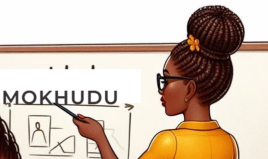The State of Education in South Africa: Challenges and Progress
Education in South Africa is undergoing transformation, striving to bridge the deep inequalities left by the apartheid era. While enrollment rates have increased, students continue to face numerous challenges, including overcrowded classrooms, underqualified teachers, and limited resources. However, initiatives and programs are making a difference in providing opportunities for those in need.
Bridging the Educational Gap
The South African government has made significant efforts to improve education by removing school fees in impoverished areas. However, the system remains overwhelmed, with subpar facilities hindering learning. Although the country allocates a large portion of its GDP to education, South Africa still ranks low globally in terms of schooling quality. Experts attribute this not only to limited facilities but also to inadequate teacher training and a highly unionized profession.
Economic Disparities and Educational Outcomes
South Africa’s education system remains largely divided between well-resourced schools for the wealthy and underfunded schools for the poor, mainly affecting black communities. While organizations like Students for a Better Future offer scholarships to talented students from disadvantaged backgrounds, the education gap persists. Some students struggle with adapting to more privileged environments, creating feelings of self-doubt and intimidation.
The Challenge of Higher Education
Despite the availability of universities, only a small percentage of South African students qualify for enrollment due to poor secondary education. Financial difficulties also force many to drop out. The disparity between prestigious institutions and historically black universities is stark, leading to differing success rates among students from different economic backgrounds. Programs at universities like Cape Town University aim to support struggling students by addressing issues such as poor writing skills, computer illiteracy, and language barriers.
Beyond Graduation: Facing Unemployment
Even after obtaining a degree, graduates face high unemployment rates. The job market remains challenging, making it difficult for students to find meaningful employment, further perpetuating economic inequality.
Using the Arts to Empower the Youth
While formal education faces difficulties, innovative programs like the Joburg Ballet Development Program provide underprivileged children with opportunities to explore classical and contemporary dance. Ballet not only offers an artistic outlet but also instills discipline, confidence, and life skills that benefit students beyond the studio. This initiative reaches thousands of children each year, proving that arts education can be a transformative tool for youth empowerment.
Looking Ahead
The South African education system is at a crossroads. While efforts have been made to improve access to education, deeper systemic reforms are needed to address quality, inequality, and job placement. Without these changes, the country risks an educational crisis that could have long-term socio-economic consequences.
What are your thoughts on South Africa’s .*education system? Share your ideas with us on social medi
*Learning World, in association with WISE, an initiative of the Qatar Foundation.*a!
Source: https://www.youtube.com/watch?v=25ll4iB74a4&pp=ygUXc291dGggYWZyaWNhbiBlZHVjYXRpb24%3D

Pingback: cheap viagra 25mg